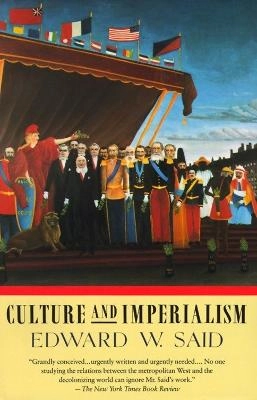The extraordinary reach of Western imperialism in the nineteenth and early twentieth centuries is one of the most astonishing facts in all of geopolitical history. Neither Rome, nor Byzantium, nor Spain at the height of its glory came close to the imperial scope of France, the United States, and particularly Great Britain in these years. But while the rule of these vast dominions left scarcely a corner of life untouched in either the colonies or the imperialist capitals, its profound influence upon the cultural products of the West has been largely ignored. In this dazzling work of historical inquiry, Edward Said shows how the justification for empire-building was inescapably embedded in the Western cultural imagination during the Age of Empire, and how even today the imperial legacy colors relations between the West and the formerly colonized world at every level of political, ideological, and social practice. Probing some of the great masterpieces of the Western tradition - including Conrad's Heart of Darkness, Austen's Mansfield Park, Verdi's Aida, and Camus's L'Estranger - Said brilliantly illuminates how culture and politics cooperated, knowingly and unknowingly, to produce a system of domination that involved more than cannon and soldiers - a sovereignty that extended over forms, images, and the very imaginations of both the dominators and the dominated. The result was a "consolidated vision" that affirmed not merely the Europeans' right to rule but their obligation, and made alternative arrangements unthinkable. Pervasive as this vision was, however, it did not go unchallenged. Said also traces the development of an "oppositional strain" in the works of native writers who participated in the perilous process of cultural decolonization. Working mainly in the languages of their colonial masters, these writers - including William Butler Yeats, Salman Rushdie, Aime Cesaire, and Chinua Achebe - identified and exposed mechanisms of control and repression.
Åtkomstkoder och digitalt tilläggsmaterial garanteras inte med begagnade böcker





















